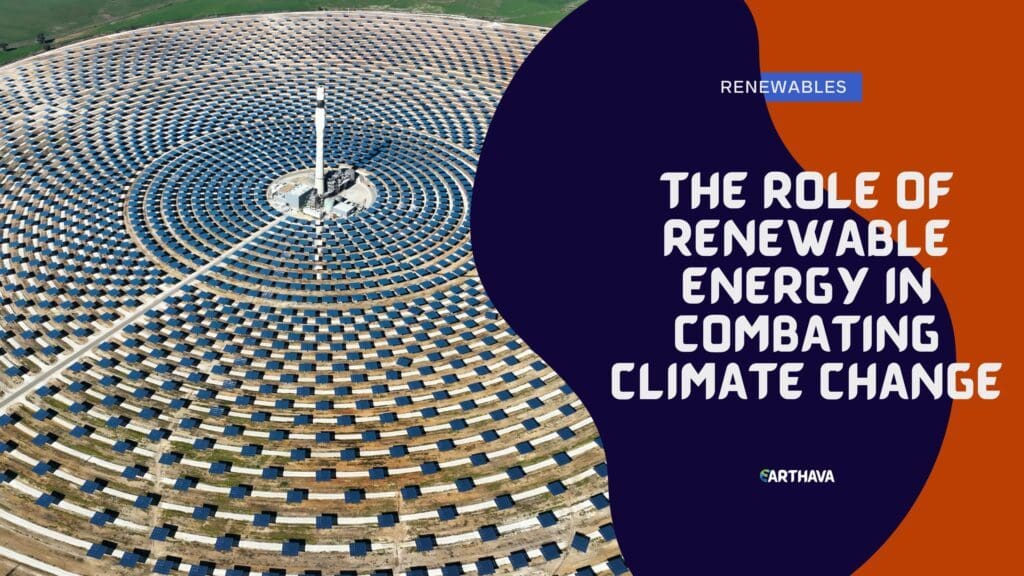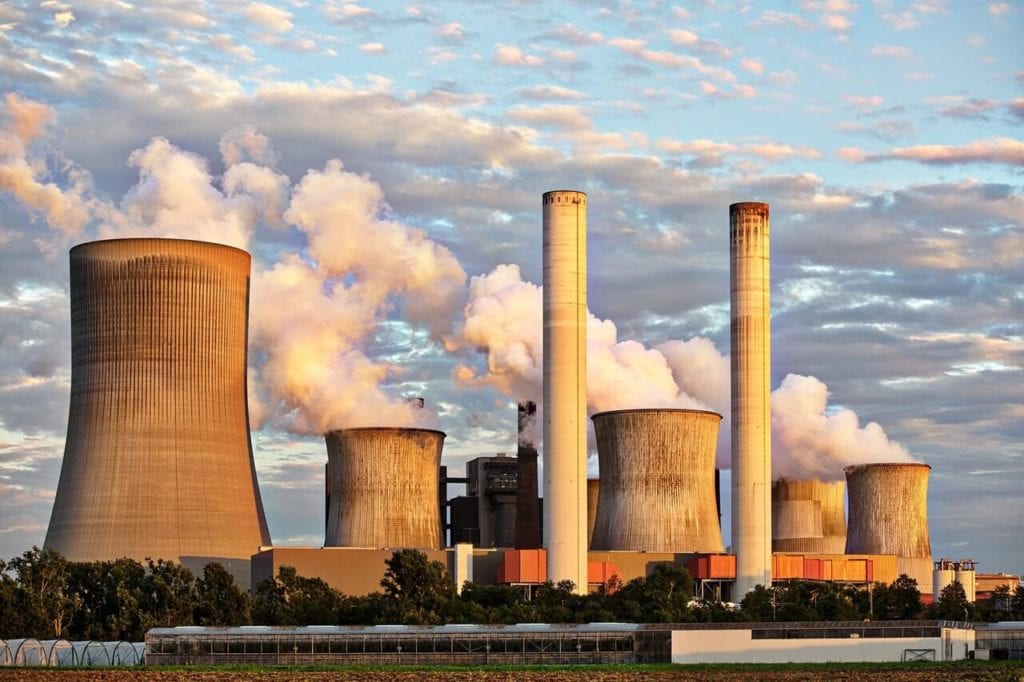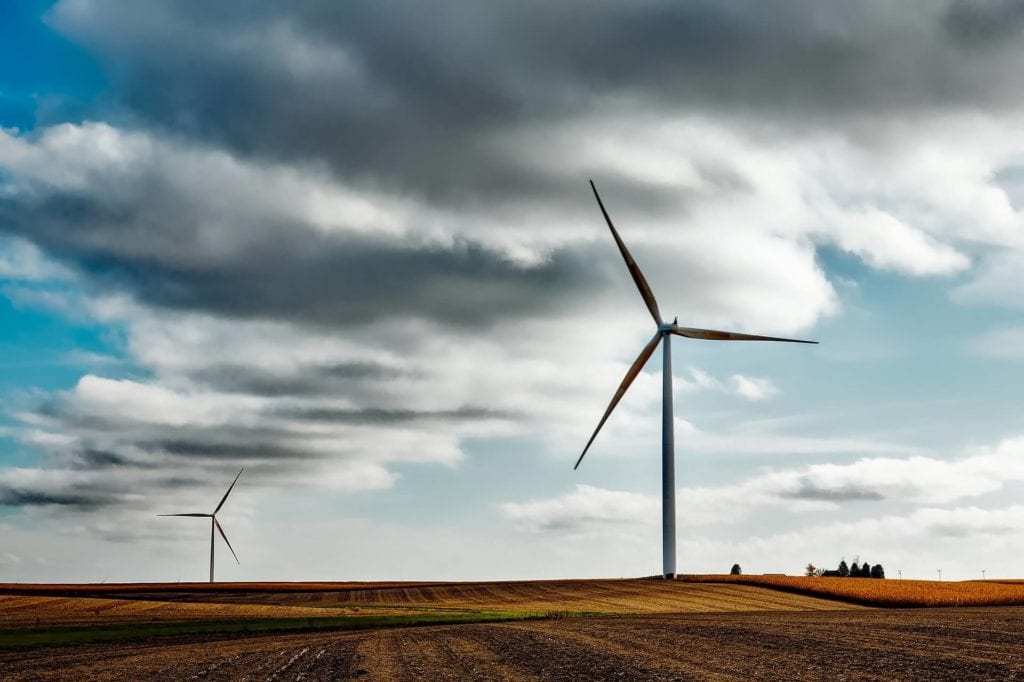It’s hard to turn on your phone or television without hearing about a new disaster, whether escalating economic and political crises in Venezuela and France, extreme weather gripping the American Midwest, or 16-year-old climate activist Greta Thunberg telling unmoved politicians that she has no future because they support industries that deplete resources and harm the Earth’s ecosystem.

Scientists have been issuing dire warnings about the catastrophes that await us if world governments don’t commit to keeping global temperature rise below 1.5°C, most recently in a special report from the UN’s Intergovernmental Panel on Climate Change in October of last year.
In the United States, candidates from the ever-growing Democratic primary field and Democratic House freshmen have made climate change their number-one priority with Alexandria Ocasio-Cortez’s Green New Deal and Beto O’Rourke’s recently unveiled climate plan setting some of the most ambitious emission-reduction targets to date. Even some Republicans are introducing climate policy measures to tackle global warming as their constituents become more concerned with its effects.
So what do protests in Europe, a coup d’etat in South America, changing weather, and American politics have in common? One giant, global industry.
Fossil Fuels

In fact, their use now is causing irreversible damage in communities across America and has recently been linked to talk of military intervention in Venezuela. Access to oil resources is also commonly cited as a contributing factor to the ongoing wars in Iraq and Afghanistan, among others.
Reliance on fossil fuels also contributes to the global income gap and perpetuates the Third World status of undeveloped and developing countries by commandeering their resources while taking advantage of cheap labor.
Government subsidies for oil projects in Venezuela, the UK, and elsewhere only drive the income gap wider, as taxpayers unwittingly fund some of the wealthiest corporations in the world. Moreover, the oil industry is served by high prices, and economists rejoice when the price-per-barrel skyrockets. But it drives everyday citizens out to the streets to protest, sometimes leading to violent clashes with police, as happened in Paris in November of last year and Mexico two years ago.
When prices rise and even when they fall, it can be devastating for oil-rich nations like Venezuela that rely heavily on crude production and export revenues. The country has experienced violent waves of civil unrest several times in the last decades due to permutations in the oil industry, whether in the form of price hikes for domestic consumers, dipping prices on the world market hemorrhaging state revenues, or gas shortages at home forcing the government to import foreign oil.
For nearly a year from April 2016 to February 2017, protesters made headlines when they blocked the Dakota Access Pipeline because it would encroach on water supply and Sioux burial grounds. Similar movements have taken place throughout Europe, Asia, and the Americas, especially in areas where increasingly autocratic governments negotiate land and development deals with multinational corporations without input from indigenous populations. The crises have been so frequent and so violent that the UN has urged indigenous populations to band together against the threat.
Simply put, the global economy’s current reliance on fossil fuels is not only unsustainable but unethical.
Climate Change and Public Health
Environmental damage caused by the extraction, production, and usage of fossil fuels is intrinsically connected to human health. Carbon emissions from the fossil fuel industry are responsible for two-thirds of greenhouse gases globally, which not only contributes to global warming in the long run but also air pollution that impacts people on a daily basis. Coal mining and coal-powered plants have also long been associated with smog, acid water runoff, environmental toxins, and other pollutants causing respiratory, cardiovascular, and neurological disorders in surrounding populations.
A newer method of natural gas extraction called hydraulic fracturing, or fracking, has been the object of praise, development, and investment over the last decade, as well as the object of controversy.
Environmental studies have found the process releases harmful chemicals and sand particles into the air, causing acute respiratory distress including asthma in local residents near fracked wells. Drinking water has also been contaminated, infamously causing taps to catch on fire in homes in Colorado, Pennsylvania, and New York. Perhaps worst of all, air and water pollution near fracking sites have been linked to fetal and birth complications, increasing the risk of premature birth by as much as forty percent.
Traditional oil tankers drilling oil beneath the ocean floor are frequently responsible for major ecological disasters, such as the well-known Exxon Valdez and the Deepwater Horizon oil spill. However, smaller oil spills and explosions are also common occurrences, causing worker deaths as well as damage to wildlife and marine habitats.
Recent incidents include oil tanker fires and natural gas explosions in Gillette, Wyoming; Durham, North Carolina; and Noble County, Ohio; and an 88-ton oil spill near Papua New Guinea which began in early February when a carrier ship ran aground and continued to leak for two months.
If only there were an alternative.
Renewable Energy

Renewable energy sources include solar power, wind power, hydroelectricity, and bioenergy derived from organic matter. These resources (the sun, water, biomass) are naturally occurring and are constantly replenished on their own, and can be used to produce electricity and fuel for transportation in all parts of the world, ensuring universal access to electricity for the 1.1 billion people currently living without it. And, because there is no need for invasive industrial production methods, many can be implemented for the cost of equipment and maintenance, making energy affordable for everyone.
Besides reducing inequality, renewables contribute no carbon emissions or greenhouse gases to the atmosphere. Adapting to them now could mitigate global temperature rise and avert some of the more catastrophic scenarios in the UN climate report. Encouragingly, renewable energy is set to surpass coal in electricity production in the United States for the first time this month, despite attempts by the Trump administration to revive the dying (and deadly) industry. Renewable energy is proving profitable, as well as sustainable for generations to come.
The benefits of renewable energy seem endless, yet advocates face fierce opposition from industry lobbyists, climate change denial propaganda (often funded and proliferated by oil companies), fears of global financial collapse from certain economists, and politicians with a stake in the industry. They not only rely on Big Oil for donations and trade deals but also its workers, whom they rely upon for votes.
Despite claims to be on board with the Paris Accords and making small changes to reduce emissions, oil companies are generally proceeding with business as usual. According to The Economist, ExxonMobile plans to increase oil and gas output by 25% by 2025, and projects market demand will continue to rise over the coming decade. With an outlook like that, it’s easy for them to justify ramping up fossil fuel production, rather than moving away from it.
This single-minded drive for profit and the proverbial dragging of feet by Western governments is why activists like Greta Thunberg are pressuring world leaders to limit the scope and power of multinationals, why a polar vortex ripped through Ohio in January, and why Yellow Vest protests still rock the streets of Paris every weekend. Until the world truly kicks its dependence on oil and gas, this type of unrest, extreme weather patterns, and ecological disasters will only continue.


